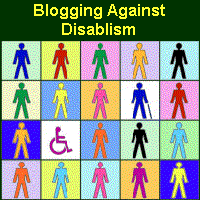I love my country, the United States. And that’s why I am so embarassed about the current cavalcade of birth control follies now overtaking our public life.
We have so many material resources, why can’t we share them to help all who need help covering the full range of family planning choices, without all this uproar? Poor Americans, immigrants, people of color, women, people with disabilities…why why why are these the groups that always get lost in the shuffle?
Exhibit A of said cavalcade: The all male panel that was convened before Congress to explain why the recent Department of Health and Human Services ruling on family planning coverage intrudes upon religious freedom.
When pressed, apparently, some of the panel members conceded that maybe contraception was OK in cases of “medical necessity.”
In an animated conversation with people I know, I submitted that this concession might stem from a belief that women with disabilities/health impairments have no business reproducing. Someone said that I was prejudicial, leaping to conclusions.
So I read through each of the panelists’ testimonies. If anyone can provide substantive evidence that any of these men have good disability and/or women’s rights records, then pleasantly surprise me, would you please?
Reading the testimonies just made me even more skeptical that any of them get the reproductive rights of women with disabilities–let alone *all* women’s family planning rights. Below are my notes on each testimony. If you want to read the testimonies yourself, please go here.
William Lori, US Conference of Catholic Bishops: Compares the proposed contraceptive coverage regulations to the government forcing Orthodox Jewish delis to serve pork, when that pork eaters can easily, cheaply, and freely get their chosen meat elsewhere.
This analogy does not hold (and it offends me as someone whose vision of reverence for life encompasses being a vegetarian, and an anti-anti-Semite). Pork is death-dealing, first of all to pigs, and second of all to humans who develop serious health problems from eating it. Access to free/affordable voluntary contraception, on the other hand, is often life- and health-giving for women, especially women with disabilities.
The analogy also suggests that contraception is somehow an optional luxury, one already easily, freely, cheaply available through many other venues. Yet the reality is that family planning access is far from a given for millions of US women, including and especially women with disabilities.
Women with disabilities are far more likely than nondisabled to live in poverty, rely on government benefit programs, be unemployed or underemployed, and thus to have constricted access, if any, to health care of all kinds, including voluntary family planning services and supplies. Any HHS ruling that expands voluntary family planning access, whether through government programs, private health plans, or some combination of the two, thus promotes the interests and needs of women with disabilities. Does Lori know this?
Matthew C. Harrison, President, Lutheran Church-Missouri Synod: “We object to the use of drugs and procedures used to take the lives of unborn children. We oppose this mandate since it requires religious organizations to pay for and otherwise facilitate the use of such drugs by their employees.”
As All Our Lives asserts every day, just about, according to the best, most current scientific evidence, IUDs and hormonal birth control methods such as the pill and Plan B emergency contraception work *before* conception and not at any point after. Thus the contraceptive coverage ruling is in fact solely about pregnancy *prevention*, by *anyone’s* definition of when life or pregnancy begins.
If Harrison believes this misinformation about such a critical health issue impacting so many women, with or without disabilities: then why should I be optimistic that he is amply informed about, let alone eager to promote and defend the family planning concerns of women with disabilities, a frequently overlooked and neglected minority population?
C. Ben Mitchell, Union University: “I am here to decry the contraception, abortifacient, and sterilization mandate issued by the Department of Health and Human Services on January 20, 2012…” , See my objections to Harrison’s testimony.
Meir Soloveichick, Yeshiva University: “The administration denies people of faith the ability to define their religious activity.” This definition of “people of faith” does not include or side with disabled women who make prayerful, conscientious, lifegiving, and lifesaving decisions about which family planning method(s) to use and when and whether to pursue conception.
Craig Mitchell, Southwestern Baptist Theological Seminary: “This rule…takes away the freedom of the citizens while emboldening the federal government to do whatever it wants.”
Whoa….Just about every discriminated-against group in the US has heard such an argument leveled against its own struggle for justice.
Mitchell’s definition here of “citizens” who are deprived of freedom sides with powerful religious institutions whose policy on birth control, especially when intruded into the public sphere, infringes upon the freedoms of many women with disabilities (not to mention women in general, but let’s stay focused on this doubly discriminated against minority for the time being.)
In effect it forces a “choice” between lifelong celibacy and a single method of family planning, natural family planning that may be right for some women. But for many women with disabilities, NFP is quite ineffective and illfitting, even as pregnancy may be quite risky for them, and they wish *themselves* to conceive sparingly, or not at all.
Mitchell’s notion here of “citizens” deprived of their freedom in regard to family planning does not appear to recognize women with disabilities and their children’s and their own rights to health and life.
I treasure religious freedom, especially as someone affiliated with a distinctly minority, other than Christian faith. Some of my ancestors were forcibly deprived of their religious freedom. Never again! But these testimonies…so awry…so unaware, it seems, of who they are excluding, and why, and how. In the name of prolife, even though their unwillingness to meet the administration halfway could end up costing lives, unborn, already born.

